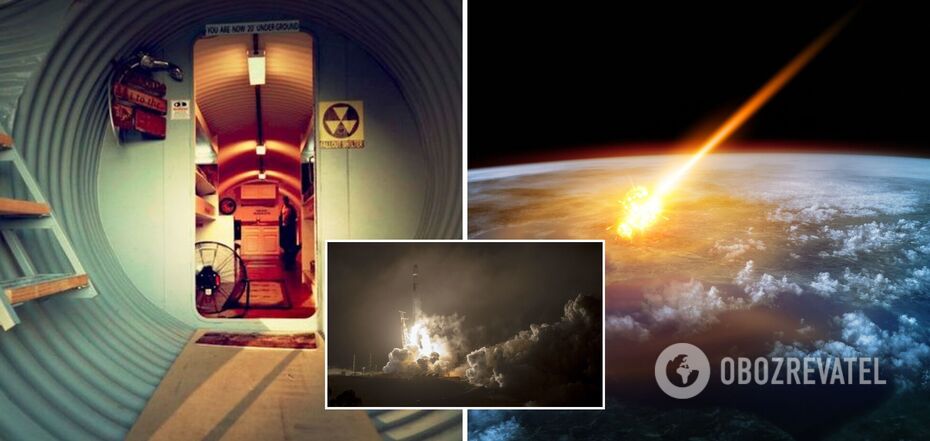Life
What will happen when an asteroid crashes into the Earth: scientists describe scenarios and predict the fate of humanity
An asteroid crashing to Earth could wipe out all life on the planet, but the consequences of the destruction depend entirely on its size. Scientists have created a simulation of how devastating the consequences of such a phenomenon would be.
The SUN newspaper reported on the threat that space objects can pose to our planet.
Scientists note that not all asteroids are dangerous to humanity. A rock must be large enough to destroy life on Earth. As an example, the researchers took a space object that destroyed the dinosaurs - it was about 12 km wide.
If an asteroid of the same size were to hit the Earth today, we would immediately feel significant changes in the environment. Fires, powerful shock waves and acid rain would engulf the planet. If the space body falls into the water, it will cause an extremely destructive tsunami.
Britt Scharringhausen, an associate professor of physics and astronomy at Beloit College, explained that a significant amount of ash from the fires and all the small debris from the impact would hang in the atmosphere for a long time, and the Earth would be covered by a phenomenon known as an impact winter.
"So, you burn things, kill everything in the ocean and freeze the Earth, and it goes through about two years of constant winter," the expert said.
However, she believes that not all life on the planet will be destroyed in the event of such a powerful impact. This is even proved by history, given that even though the asteroid wiped out the dinosaurs, much smaller creatures were able to survive the cataclysm.
It is likely that if humanity prepares for an asteroid impact, it will be able to survive the impact of even such a huge space boulder. The scientist believes that the best way to survive is to move underground. If you build underground bunkers and fill them with supplies for the long winter, until you can grow food again, it is quite possible to survive this cataclysm.
Plans to protect the Earth
However, many experts are concerned about the fact that our planet remains vulnerable to the threat of asteroid impacts.
SpaceX CEO Elon Musk expressed the same opinion when he posted on Twitter: "Eventually, a big rock will hit the Earth, and we have no defences at the moment."
However, scientists are not celebrating and NASA is exploring ways to prevent a catastrophic scenario. The agency recently launched DART, the Double Asteroid Redirection Mission.
It is noted that this is the first mission in history to investigate and demonstrate one of the methods of deflecting an asteroid by changing the asteroid's motion in space using a kinetic impact.
The spacecraft is set to crash into a small asteroid called Dimorphos in September and shift it off its predicted course.
As reported by OBOZREVATEL, on November 24, 2021, NASA launched the world's first DART mission from Vandenberg Space Base, California, aboard a SpaceX Falcon 9 rocket to test asteroid deflection technology. The spacecraft, travelling at 15,000 miles per hour, is to crash into the asteroid and knock it off course in one powerful impact to protect the planet.



























